Diamond Dallas Page is a former WCW Champion and former WWE European Champion, amongst many other honours. A veteran of the Monday Night Wars, he was one of the most popular wrestlers in the history of the WCW and was widely considered to be the ‘people’s champion’ by WCW fans. He’s best remembered for his guerrilla-style wars with the New World Order. Even though his WWE run wasn’t what it could and should have been, DDP has made a huge difference in the industry as the pioneer of DDP Yoga.
PG: Before we start I just want to say how unreal it is that I’m actually talking to you. I remember watching you on Saturday nights, that’s when we got WCW in India, back then. My most vivid memories are your wars with the NWO and ‘crow sting’. Thank for talking to us sir, it's an honour.
DDP: Yeah, it was a lot of fun. (laughs)
10 WWE Stars Who Are Now Banned - Find Out Now!
We start off the interview by talking about his documentary film, The Resurrection of Jake The Snake which is available on Netflix, iTunes, PlayStation, Xbox and more.
PG: Do you think that Jake and Scott’s well-noted personal demons had any part with their problems with substance abuse later in their lives. Like, for Jake we know he had a troubled childhood and Scott had the nightclub shooting on his conscience.
DDP: Yeah, I think all the stuff as children affects us as we grow up and in Jake’s scenario, without question. Same thing with Scott. Scott’s father was an alcoholic and so was his mother. And, you know, coming up through that and by the time he finally shot and killed that guy he’d already had a lot of demons.
Whether he was fighting back for his life or whatever, it doesn’t matter, you still kill somebody and Scott carried that with him. Really what both Jake and Scott did was tell themselves the stories over and over again, of the bad stuff that happened so they couldn’t get out of that loop. Scott Hall says all the time now, “You know, I drank the Kool-Aid”. He’s finally started believing that positive breeds positive and negative breeds negative.
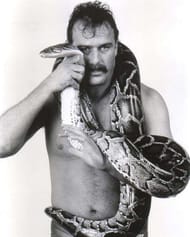
PG: With Jake’s recovery, do you think the hardest part of it, for him, was him believing he could do it?
DDP: Absolutely. I don’t think Jake ever believed he could do it. So for him to have success, you know, it took little successes to create the final big success, a lot of little successes to get to today. Today, he believes he’s in a really good spot and I think it was all the little wins and triumphs he’s had along the way.
PG: At the beginning of the film, it seemed as though a major factor for Jake’s issues was the fact that he was angry with himself, more than anything else, for whiling away his career because of his addictions. Do you think that was the case?
DDP: Umm, Jake had a lot of shame and a lot of self-hate. I always tell people, if you don’t love yourself then you’re never going to be able to love anyone else or help yourself, because if you don’t really think you deserve it you won’t help yourself. It took Jake a long time to get there.
PG: In the beginning of the film, I remember this moment when Jake said that you were his last shot at life.
DDP: Yeah, saying that this was his last chance.
PG: It also shocked me, the part at the beginning where Jake fell off the wagon just a week or so into the program, when you guys were picking him up from the airport. I actually couldn’t believe he relapsed so soon.
DDP: Well you know, you lie to yourself as a junkie, you lie to everybody. You lie, you steal, you cheat and I think that when we talked to Jake when he fell down – drinking, slipping out of the house and things – and I think he got a little bit more control of himself each time because he didn’t really want to be that person anymore.
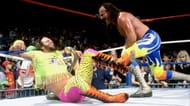
PG: At that time Jake felt that he didn’t feel good enough. Do you think that has changed since?
DDP: He’s in a pretty good spot now, the best that I’ve ever seen him in. He’s working hard right now – for his bills, for his past decisions and he’s working himself out of the hole. Right now I think he’s doing really well.
PG: After watching the film, I think the turning point was the time when he needed to raise money for the surgery and the overwhelming response of the fans, who raised the money in no time. Do you think that was a pivotal moment? The moment when he realized how much the fans still loved him.
DDP: There were a lot of turning points, but as far as the fans were concerned that was the biggest turning point. You didn’t really get that with Scott to the same extent, but you could see, that they couldn’t believe how much the fans cared for them, more than they cared about themselves. That’s not the way life is supposed to be.

PG: In your opinion, who’s recovery was more difficult – Jake or Scott?
DDP: They were both different but I wouldn’t say that anyone was more difficult or challenging than the other. Addiction, in general, is a bear and it’s tough for anyone. You hope that they will stay good and they fall down.
Most times I didn’t take it personally but there are some other times that I did and I got frustrated, but with Steve Yu, the director, at least I had someone else to talk to who was going through the same thing. I think that as time went on, it just got easier. Each time it got a little bit easier.
PG: In the beginning of the film, I remember you got a little bit emotional when you were talking about how Jake was your mentor and how helped you at the beginning of your career. Some fans might not know that you started wrestling pretty late.
DDP: At 35 years old, 35 and a half years old I started wrestling. I knew Jake from the night club business, well first I knew him from being Jake ‘The Snake’ Roberts. I tried wrestling when I was 22 years old and it didn’t work out for me and then I came back as a manager in 1987. But before all of that in 1986, I met Jake in a night club and I was a big fan of his. He made me want to get back into wrestling.
When I was 22 and it didn’t work out for me, I stopped watching wrestling. I tried to wrestle in 1978 and like I said, it didn’t work out for me. Once I stopped watching wrestling it was Jake that drew me in and he made me want to be involved again or at least give it a try. When I met him in the night club, we just got steady as drinking buddies. I’d see him whenever they were in town. So when I went to the AWA to manage and Floria Championship Wrestling, I hadn’t seen Jake for a while and then when I showed up in WCW as a manager and they wouldn’t let me do that anymore and I had 7 months left on my contract at the time, I decided that I’d try to become a wrestler again.
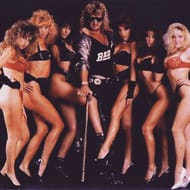
Around 5 months into it, Jake was coming into WCW and he came into training and recognized me and I became like his driver. I’d go to the shows with him and he would watch my matches from time to time and give me advice. Then he left the company because of a problem and I tore my rotator cuff and then the let me go, WCW didn’t technically fire me but they laid me off and long story short, Jake and I reconnected again and he ended up moving in with me and my ex-wife Kimberly and stayed with us for three months. I couldn’t wait to get in the ring and work out with him.
I knew how to do all the moves, I just needed to learn the psychology – having a match, getting the people involved and getting people to care. For years, he would watch my matches and give me advice, right on up to 1996 when my career started to take off. Then we lost touch with each other for about a year and then he called me in 1997. When I picked up the phone he only said one word, “Congratulations.” I said, “For what”, and he said, “For reinventing the DDT.” That was a pretty big compliment, coming from your mentor and the guy you thought did it better than anybody and especially his finish, it was the best, the DDT. When he hit it the crowd would go crazy, and that’s also what happened with the Diamond Cutter. So, I ended up making a lot of money because of Jake, I ended up making millions of dollars. I always wanted to repay him and I tried to help him a couple of times but he wasn’t ready yet.
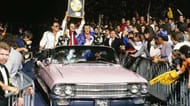
PG: What happened this time?
DDP: This time I was moving from LA back to Atalanta and director Steve Yu, who’s also the president of DDPYoga said, “Wouldn’t it be interesting if Jake moved in with you,” and I said “Dude, he doesn’t have to live with me,” because Jake was a handful.
The reason why Kimberly threw him out of the house back when he lived with us 20 years earlier was because he lost a 12-foot black cobra in the house. He really didn’t lose it, he put it in the shower and the snake came out of the tub and hid under the vanity. The snake didn’t come out till I got a snake handler to come and get him.
Bottom line is, Jake took off in three days and went on a bender and she threw him out at that point. I knew he’d be a handful now at 58 years old and I couldn’t even have an intelligent conversation with him back then when we started this time because he was just so….his brain was foggy let’s call it and he was delusional.
He didn’t really have a sense of reality and it was really tough in the beginning. But he tried hard and he worked hard, even though he fell along the way. But he helped me as I went through my journey so I just felt compelled and thank god Steve Yu, the director, felt the same way because I couldn’t have done it by myself. It took my whole crew, it took everybody, to get Jake sober.
PG: When people talk about Jake, the first thing they mention is in-ring psychology. Do you think it had something to do with the fact that his father was also a wrestler or was it all natural talent?
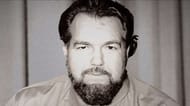
DDP: I think being a second generation wrestler, you kind of look at the business differently. Jake’s father, after his first match, told him he was worthless and gutless and told him that it made him ashamed to be his father. That’s what he said after Jake’s first match and so that pissed Jake off and it made him work 5 times harder.
Back then Jake understood work ethic and he understood the business. He had uncanny sense, sort of like I did too. There are certain people who get it, at a different level. With Jake, because he got his start when there were territories. When you get to go from one territory to another territory to another territory to wrestle, you can make a lot of mistakes along the way and no one knew about it.
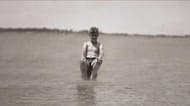
Today you got NXT and then you have WWE. I got to practice being Diamond Dallas page in the AWA and Florida Champion Wrestling before I ever got to WCW. Now my matches, they were like – you had one place, WCW or the WWE – you have what you got there and you better be able to deliver and I really couldn’t but I could make it look like I was better than I was and instead of having a territory to go to, I would go back to the Power Plant where I learnt how to wrestle and I trained the younger guys and I figured out that the more you train someone the more you learn and the more you learn, the better you get.
That’s how I got better and better and better but also I had good guidance from different people, Jake being the primary individual.
That’s it for part one. In the second and last part of the interview, we’ll talk about DDP Yoga, his time in WCW, what he thinks about the product and more from the only and only, Diamond Dallas Page. BANG!
Make Sportskeeda your preferred choice for WWE content by clicking here: Source preferences


